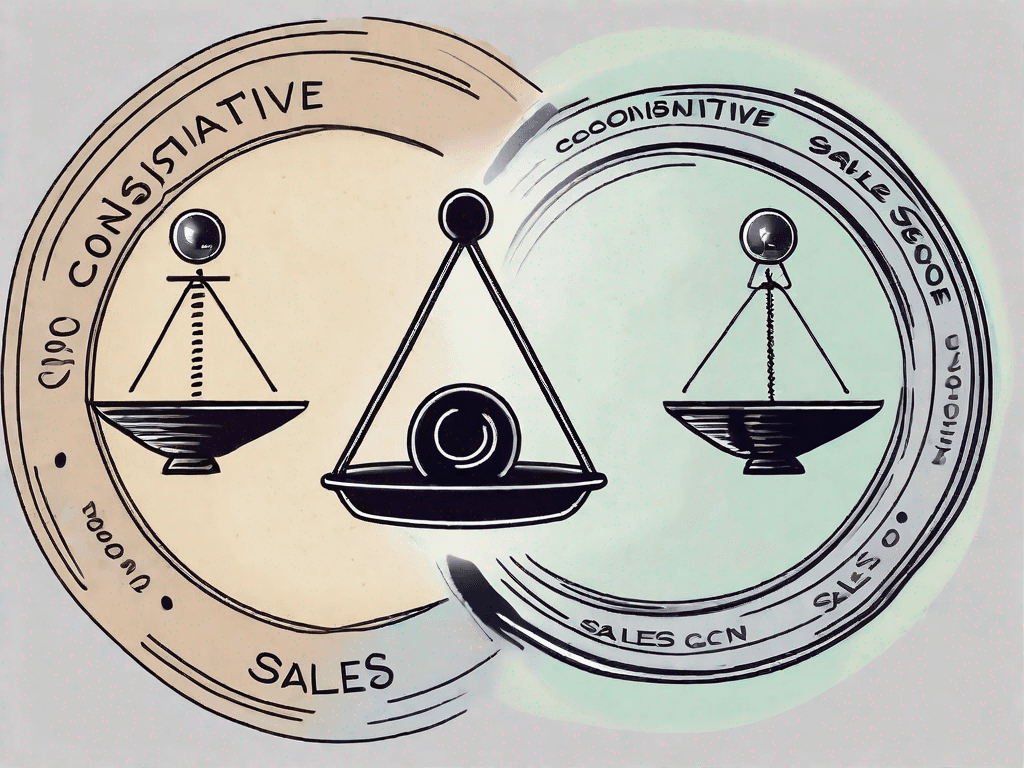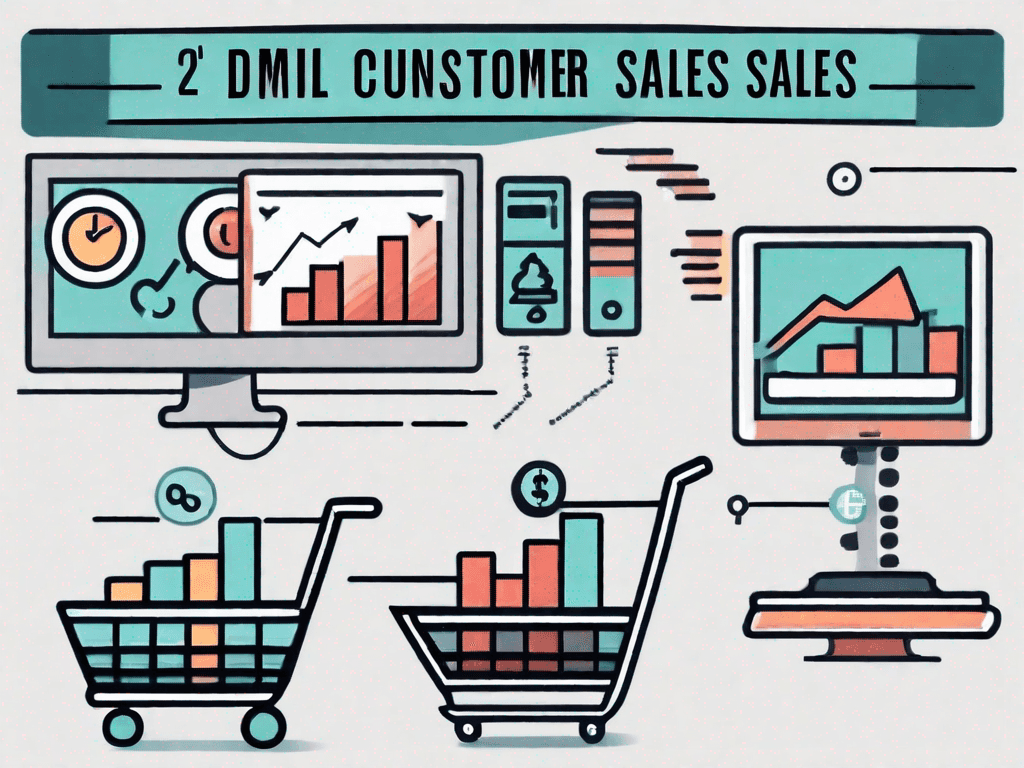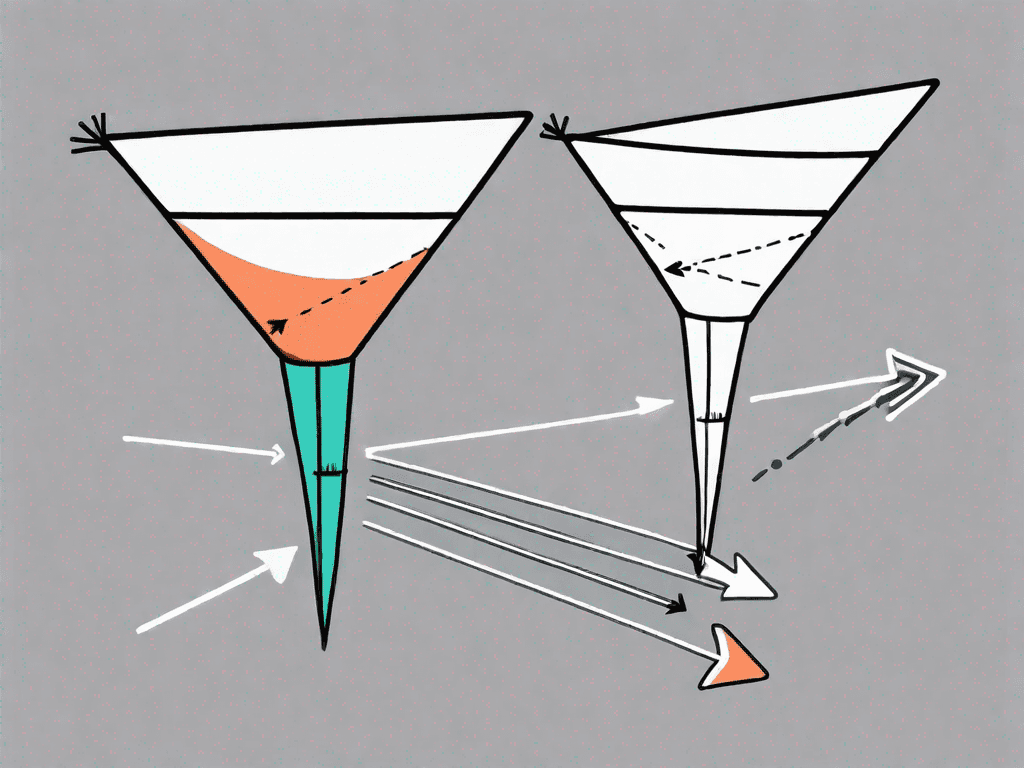
Inbound Sales Representative vs Account Executive: What's the Difference?
Inbound sales representatives and account executives are two vital roles in the sales department of any organization. While they may seem similar in many ways, there are distinct differences between the two. Understanding these differences is crucial for both professionals and companies alike. In this article, we will delve into the world of inbound sales representatives and account executives, exploring their definitions, differences, and providing real-life examples to solidify our understanding. So, let's get started
Defining Inbound Sales Representative and Account Executive
1.1 - What is an Inbound Sales Representative?
An inbound sales representative is a sales professional whose primary focus is on nurturing leads and converting them into customers. They work closely with the marketing team, utilizing the leads generated through various marketing campaigns. Inbound sales representatives excel at building relationships with potential customers, understanding their needs, and guiding them throughout the sales process.
These professionals are skilled at identifying prospects' pain points and educating them about how their products or services can address those challenges. They are not just order takers but rather trusted advisors who listen, empathize, and offer tailored solutions to meet the customers' requirements.
For example, let's say an inbound sales representative is working for a software company. They might receive a lead from a marketing campaign targeting small businesses. The representative would then reach out to the lead, engaging in a conversation to understand their specific pain points and business needs. They would explain how the software can streamline their operations, increase efficiency, and ultimately drive growth. By actively listening and providing personalized recommendations, the inbound sales representative builds trust and increases the likelihood of converting the lead into a paying customer.
Moreover, inbound sales representatives often leverage various communication channels to connect with leads, such as phone calls, emails, and live chat. They adapt their approach based on the preferences of the potential customer, ensuring a seamless and personalized experience.
1.2 - What is an Account Executive?
An account executive, on the other hand, is responsible for managing existing customer accounts. They focus on building and maintaining long-term relationships with clients, ensuring their satisfaction, and maximizing revenue from each account. Account executives are the primary point of contact for customers, understanding their goals, and aligning their organization's offerings to meet those objectives.
These professionals possess strong negotiation skills, as they are often involved in contract renewals, upselling, and cross-selling. They work collaboratively with the customer success team, ensuring that clients' needs are met and any issues are resolved promptly. Account executives are integral to preserving customer loyalty and driving revenue growth.
For instance, let's consider an account executive working for a telecommunications company. They would be responsible for managing a portfolio of corporate clients. The account executive would regularly communicate with these clients, understanding their evolving communication needs and identifying opportunities for upselling or cross-selling additional services, such as upgraded data plans or unified communication solutions.
In addition to managing existing accounts, account executives also play a vital role in acquiring new business. They actively seek out potential clients, engage in networking events, and participate in industry conferences to expand their network and generate leads. By staying up to date with industry trends and understanding the challenges faced by their target market, account executives can position their company's offerings as the ideal solution.
Overall, both inbound sales representatives and account executives are crucial members of a sales team. While inbound sales representatives focus on converting leads into customers, account executives nurture and grow existing client relationships. Together, they contribute to the success and growth of the organization.
What's the difference between an Inbound Sales Representative and an Account Executive?
Now that we have defined inbound sales representatives and account executives, let's explore their differences more closely. While both roles are customer-centric and play essential parts in the sales process, they have distinct areas of focus and responsibilities.
An inbound sales representative's main focus is on generating new business. They actively reach out to potential customers, educate them about the company's products or services, and guide them through the sales funnel. In addition to these core responsibilities, inbound sales representatives also engage in market research to identify new leads and develop strategies to attract them. They analyze customer data and feedback to refine their approach and optimize the sales process.
On the other hand, an account executive concentrates on nurturing and growing existing accounts. They prioritize customer retention, identifying opportunities for upselling and cross-selling to increase revenue. Account executives build strong relationships with their clients, understanding their needs and providing personalized solutions. They act as trusted advisors, ensuring customer satisfaction and loyalty.
Another key difference lies in the customer's relationship stage. Inbound sales representatives primarily interact with leads and prospects, whereas account executives work with established and active customers. This translates to different approaches and strategies employed by each role in their day-to-day activities.
For inbound sales representatives, their primary goal is to convert leads into customers. They focus on building rapport, addressing customer pain points, and showcasing the value of the company's offerings. They use various communication channels, such as phone calls, emails, and live chat, to engage with potential customers and provide them with the necessary information to make a purchase decision.
Account executives, on the other hand, take a more consultative approach. They have a deep understanding of their clients' businesses and industries, allowing them to provide tailored solutions and recommendations. Account executives regularly meet with their customers to assess their needs, discuss ongoing projects, and identify opportunities for growth. They collaborate closely with other departments, such as customer success and product development, to ensure seamless service delivery and customer satisfaction.
In summary, while both inbound sales representatives and account executives contribute to the sales process, they have distinct roles and responsibilities. Inbound sales representatives focus on generating new business and guiding potential customers through the sales funnel, while account executives prioritize customer retention and growth. Understanding these differences is crucial for organizations to effectively leverage the strengths of each role and drive overall sales success.
Examples of the Difference between an Inbound Sales Representative and an Account Executive
2.1 - Example in a Startup Context
In a startup context, an inbound sales representative might focus on qualifying leads generated from marketing campaigns, conducting product demos, and closing deals with new customers. Their primary aim is to bring in new business and create a solid customer base for the company.
On the other hand, an account executive may focus on nurturing relationships with early adopters, understanding their evolving needs, and personalizing the company's offerings to ensure customer success. They strive to expand accounts, increase customer satisfaction, and drive referrals among their existing client base.
2.2 - Example in a Consulting Context
In a consulting company, an inbound sales representative might engage with potential clients, understand their consultancy requirements, and identify suitable solutions. They act as a trusted advisor, providing insights into how the company's expertise can benefit the client's business.
An account executive in this context would be responsible for managing ongoing consulting projects, ensuring client satisfaction, and identifying opportunities for additional services. They strive to foster long-term partnerships with clients, receiving repeat business and generating positive reviews and referrals.
2.3 - Example in a Digital Marketing Agency Context
At a digital marketing agency, an inbound sales representative may respond to customer inquiries, qualify leads, and coordinate with the agency's team to design tailored marketing proposals. They focus on showcasing the agency's expertise and persuading potential clients to choose their services.
Account executives in this context would manage the relationships with existing clients, providing regular reports on campaign performance, suggesting optimizations, and working closely with clients to align their marketing strategies with business goals. They aim to ensure client satisfaction, encourage contract renewals, and identify opportunities for expanding the agency's services within the client's organization.
2.4 - Example with Analogies
Imagine a farmer's market: an inbound sales representative is like a friendly and knowledgeable vendor offering samples and describing the benefits of their fresh produce to passersby. They engage with potential customers, guiding them towards purchasing their products.
Now, an account executive is like a loyal and attentive customer who has been shopping consistently at the same vendor for years. They have established trust and familiarity with the vendor, receiving personalized recommendations and exclusive deals as a token of appreciation.
In conclusion, the difference between an inbound sales representative and an account executive lies in their primary focus, the stage of customer relationships they engage with, and their overall responsibilities. While inbound sales representatives excel at lead generation and nurturing, account executives thrive in maintaining and growing existing accounts. Both roles are crucial for a company's sales success, and understanding their distinctions allows organizations to deploy the right strategies for each stage of the customer journey.


















































































































































